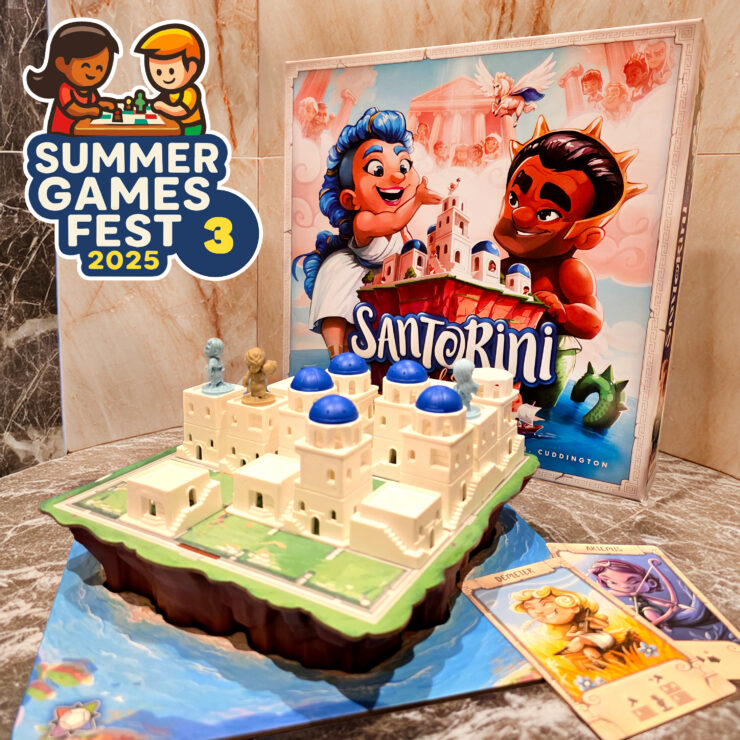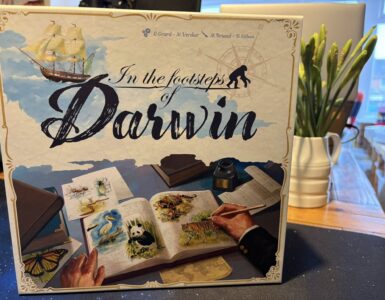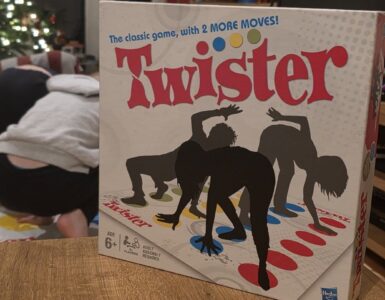I had a copy of the original version of Santorini at some point in the late 2010s, but that was before I started posting reviews on Little Board Gamers and, more importantly, before any of the kids were really old enough to play with me. I somehow lost the game – I don’t really know how. I suspect I might have lent it to someone or taken it to a games night and left it there. I’m still not really 100% sure. Either way, my copy of Santorini disappeared into the annals of time quite a few years ago.
A couple of times since then, I thought about finding another one on the secondary market. The game has been out of print and fairly difficult to get hold of without paying over the odds on eBay for quite a while. I never really got round to it, but I was really pleased when Santorini: Second Edition was released a month or so ago.
There are some improved aesthetic changes and the God powers are split into fast/beginner and advanced but the game is largely unchanged from the original.
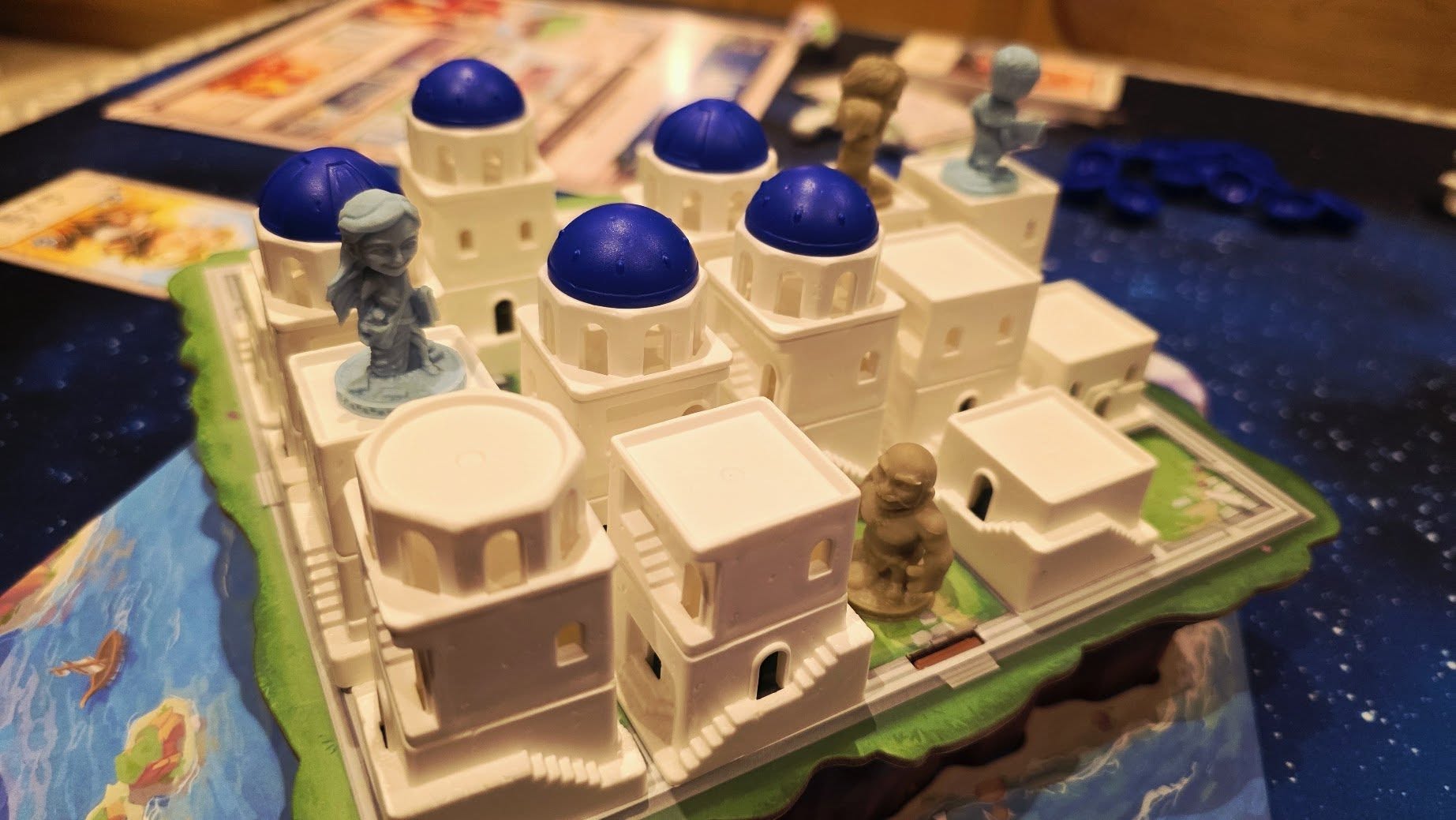
Santorini is a relatively simple game to understand. Essentially, you play as two workers in Ancient Greece who are building a city. At your disposal are four different types of city pieces that make up buildings: a base, a middle level, a top, and a dome – and they go on in that order.
What you’re trying to do to win the game is get one of your pieces to stand on the top of a building, which means reaching the third level. If a player puts a dome on top of a building, that space is blocked and no one can go on top of it.
On your turn, you can move one square in any of the eight directions around you, and then build a piece of a building in any of the eight spaces around your new position. You can only move up buildings one level at a time, but can drop down as many levels as you like.
The game works extremely well just played like this as an abstract strategy game, but to make things a bit more interesting, there are characters you can play as with special abilities. These powers change how the game plays and add a lot of replayability – they’re a really welcome addition.
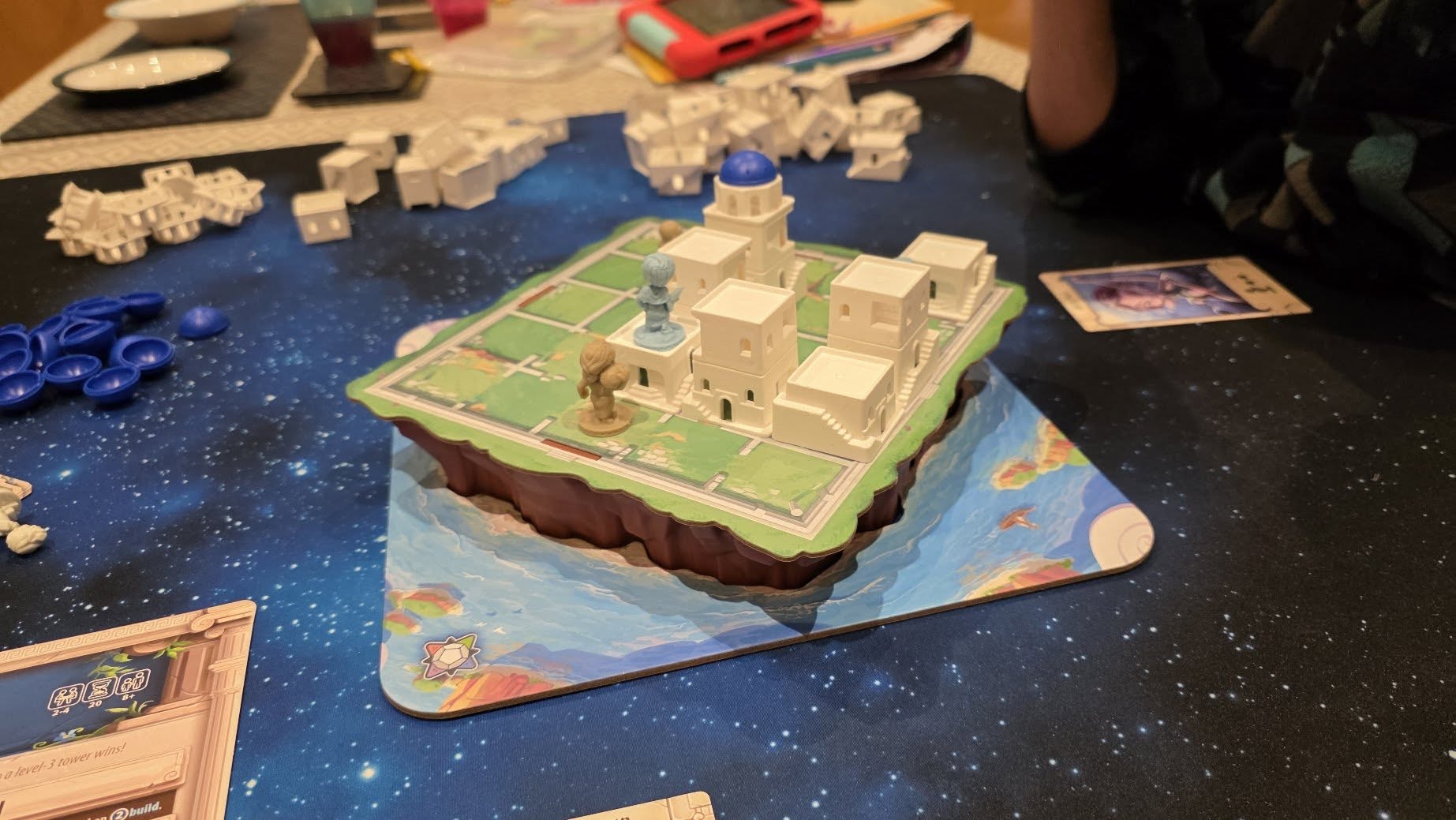
For example, Hermes can move multiple spaces in a straight line, provided he stays on the same level. Pan wins not only by climbing to the third level but also if he steps down two or more levels in a single move. Athena prevents your opponent from moving up if you moved up on your previous turn. There are loads of these powers included and they can totally change the feel of each match.
While there’s a lot of depth and strategy to it, you could happily play Santorini with really young kids as the rules are so simple and the chunky pieces lend themselves to toy-like, tactile play.
The types of people who are going to enjoy Santorini are those who like abstract games. And as far as abstract strategy games go, this one is excellent. It would be a great game anywhere, but the really high-quality components – the whole thing being played on a beautiful floating island with lovely little buildings that actually resemble the real island of Santorini – make this a game well worth tracking down. I’m really glad it finally got a reprint.


